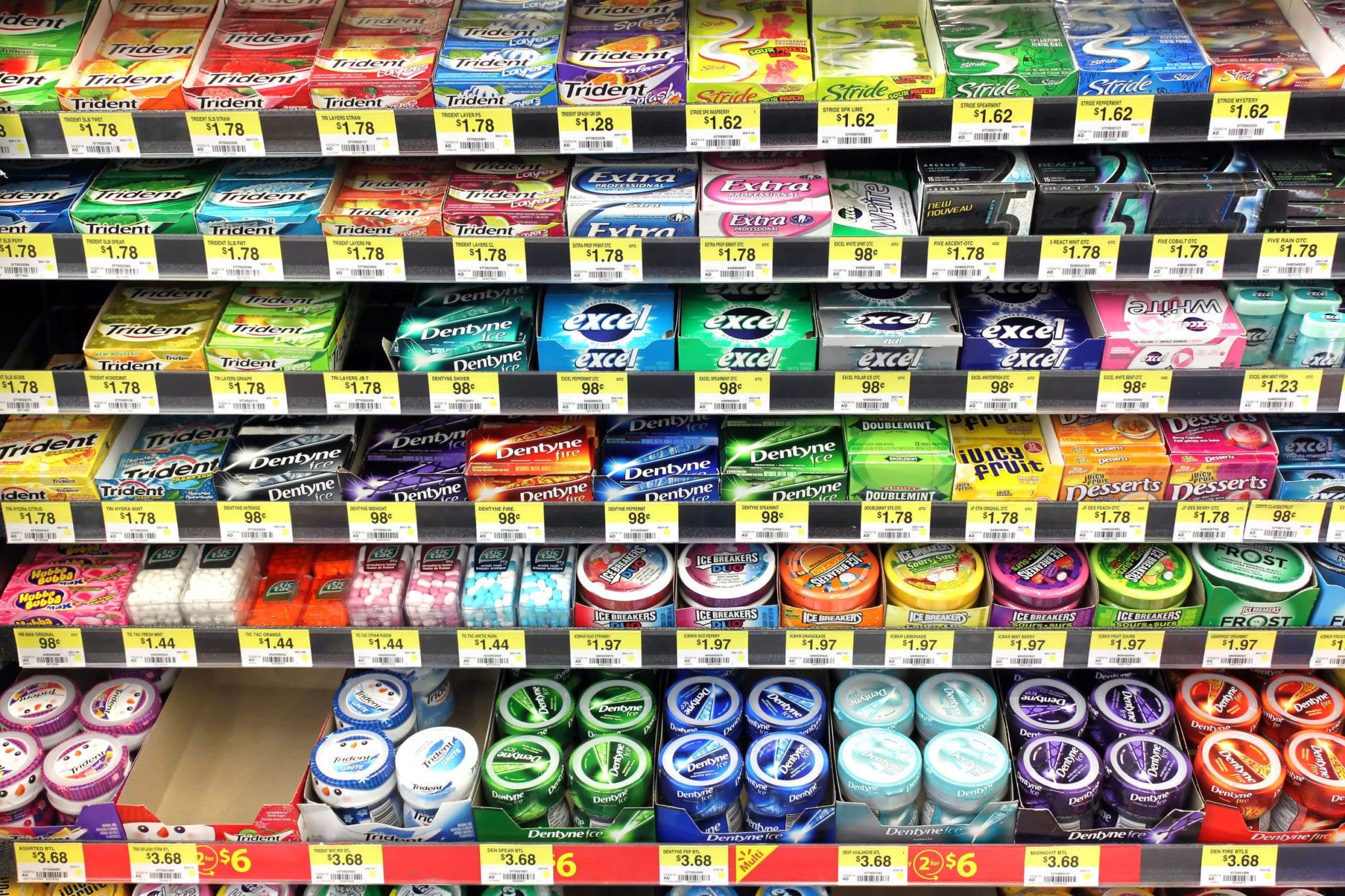
Many people already know that a stick of gum can easily and quickly save you from embarrassment due to bad breath. In fact, most of us probably have a story or two about when we weren’t able to brush or floss and a piece of gum came to our rescue.
Even better, gum is relatively cheap, easy to get, comes in a wide variety of exciting flavors, and it’s extremely portable.
Just one little problem — sugary chewing gums can make you more likely to develop cavities.
Is that always true for gum, though? Are there types out there that can actually bolster your oral health instead of putting it in jeopardy?
Short answer: yes. There are a number of studies with strong evidence supporting the idea that chewing sugar-free gum can be quite good for your teeth.
Why? In this post we’re going to detail the ways gum can help.
Sugar-Free Chewing Gums Clean the Teeth
The Oral Health Foundation has clearly espoused the amazing cavity prevention capabilities of sugarless chewing gum.
How does it do that?
During chewing, the gum picks up and cleans away food particles from the teeth surfaces.
It also collects bacteria that might have accumulated on the surface of your teeth.
Chewing gum further stimulates your salivary glands to produce saliva. This is important because saliva not only clears away food particles from the teeth, it also has additional components that strengthen teeth and reduce the acidity in your mouth.
All these factors culminate in enhanced protection from tooth decay.
Xylitol-Containing Chewing Gum Protects against Cavities
Different types of sweeteners and flavoring agents are used to supplement the gum base in commercial chewing gums. Xylitol is a common additive in some chewing gums brands.
This additive and some of its other sugarless companions reduce the formation of oral biofilms that are linked to the development of cavities, periodontal disease, toothache, and various other infectious diseases.
Xylitol in particular has been found to inhibit the growth of a notorious oral bacteria known as Streptococcus mutans. When you chew gum that contains Xylitol, oral bacterial is unable to adhere to your teeth. The more you chew xylitol-containing gum over time, the fewer cavity-causing bacteria that will survive on the surfaces of your teeth.
Chewing Gum Can Harden Tooth Enamel
Some gum manufacturers fortify their chewing gum with CPP-ACP, an amorphous compound that’s rich in calcium and phosphate. CPP-ACP is popularly known by its trade name, Recaldent.
This compound helps in the remineralization and hardening of tooth enamel. Why is that valuable? Because it makes teeth stronger and more resistant to tooth wearing and 0decay.
Which Sugar-Free Gum Is Best for Your Teeth?
Generally, the best gum is not only sugar-free, but also contains components that help in fighting cavities and strengthening tooth enamel. Most chewing gum brands with such qualities usually bear a seal from the American Dental Association (ADA).
Chewing gum that has the ADA seal is also recommended because it is sweetened with non-cavity causing agents like xylitol, sorbitol, mannitol, or aspartame.

So, next time you need a good chewing gum, go for one with an ADA seal. Talking to an experienced dentist may also help you find out which is the best chewing gum for you and your loved ones.
Don’t think that chewing sugar-free gum is a substitute for brushing, flossing, and regular dental checkups, though. Always brush at least twice daily with a good fluoride toothpaste, use dental floss or other interdental cleaners at least once every day, and schedule a dental checkup at least once every six months.






